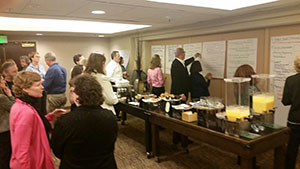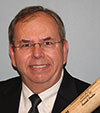Defining a Research Agenda for Distance Education
Published by: WCET | 2/10/2015
Tags: DETA, Distance Education, Research
Published by: WCET | 2/10/2015
Tags: DETA, Distance Education, Research
Thank you to Tanya Joosten, Laura Pedrick, and Diane Reddy for inviting me to a summit to kick-off the new National Research Center for Distance Education and Technological Advancements. Operated by the University of Wisconsin-Milwaukee, DETA (as they have thankfully monikered the effort) is:
“…funded by the U.S. Department of Education’s Fund for the Improvement of Postsecondary Education, seeks to foster student access and success through evidence-based, cross-institutional online learning practices and technologies. Moreover, the DETA Research Center looks to identify and evaluate effective course and institutional practices in online learning, including competency-based education, specifically addressing underrepresented populations.”
This effort is long overdue as I’m for anything that helps to answer the standard (but untrue) charge that “there is no research on distance education.” When you point to the literature, then they amend it to, “there is no good research on distance education.” As someone with a degree in educational statistics, the dirty little secret is that there is an uncomfortable amount of not-very-good research on higher education, regardless of the mode of instruction. But, enough about my pet peeves.
DETA Will Create Rigorous, Interdisciplinary, and Standardized Research
The ultimate goal is to:
“Conduct rigorous, interdisciplinary, and standardized research to identify outcomes and influences on all students, including those with disabilities.”
 According to Dr. Joosten, they plan to create research protocols that meet the “What Works Clearinghouse” guidelines. The Clearinghouse promotes randomized trials and quasi-experimental research designs where randomization is not possible.
According to Dr. Joosten, they plan to create research protocols that meet the “What Works Clearinghouse” guidelines. The Clearinghouse promotes randomized trials and quasi-experimental research designs where randomization is not possible.
Monday’s summit was the first step in identifying research questions, formulating measures, and developing research instruments. There were lively discussions across a wide range of possible research questions that included attention to inputs (student characteristics, faculty preparation, student support systems), outputs (measures of success both traditional and new), and throughputs (interventions along the way that help the student succeed).
DETA will create “research toolkits” for each research question that they choose. In year two of the grant, they will issue RFP’s for institutions (with a possible preference to groups of institution) that will conduct the research using the toolkits.
This idea of replicability of research is a key one to me. Quite often the research is one-off look at how a few students fared in a small number of course sections. We could learn much by taking a research design that has been vetted as a strong research model and apply it in a variety of institutional settings and/or students representing different demographic characteristics. We could answer the questions, “does that instance of technology-mediated instruction work?,” “in what settings does it work?,” and “in what settings does it not work?”
From the findings of the research, DETA will create effective case studies on what they have learned. The EDUCAUSE Learning Initiative (ELI) is the official dissemination partner, but WCET is very interested in helping in both the formative and dissemination stages. I’m sure our members are eager to conduct research that leads to improved student learning.
Follow DETA’s Work
Kudos to our friends at the University of Wisconsin-Milwaukee for using a very open model for their processes. See their grant website for more information on DETA and its progress. The Summit website includes lists of participants, background documents, and the discussions from each subgroup.
DETA is compiling the input and will continue to keep us informed on their progress. As WCET learns more, we will invite DETA staff to update us.
As a stats geek, it’s delightful to see that we are on the path to a solid research agenda for distance education and other forms of technology-mediated learning.
 Russ Poulin
Russ Poulin
Deputy Director, Research & Analysis
WCET
1 reply on “Defining a Research Agenda for Distance Education”
In looking over the list of participants, I was dismayed to see that Community Colleges were so sparsely represented. While research is not the forte of the CC, the track record CCs have with Distance Ed. is long. In many ways the approach of the CC to Distance Ed differs from that of the University. I would hope that the CC voice is considered and heard in this research.